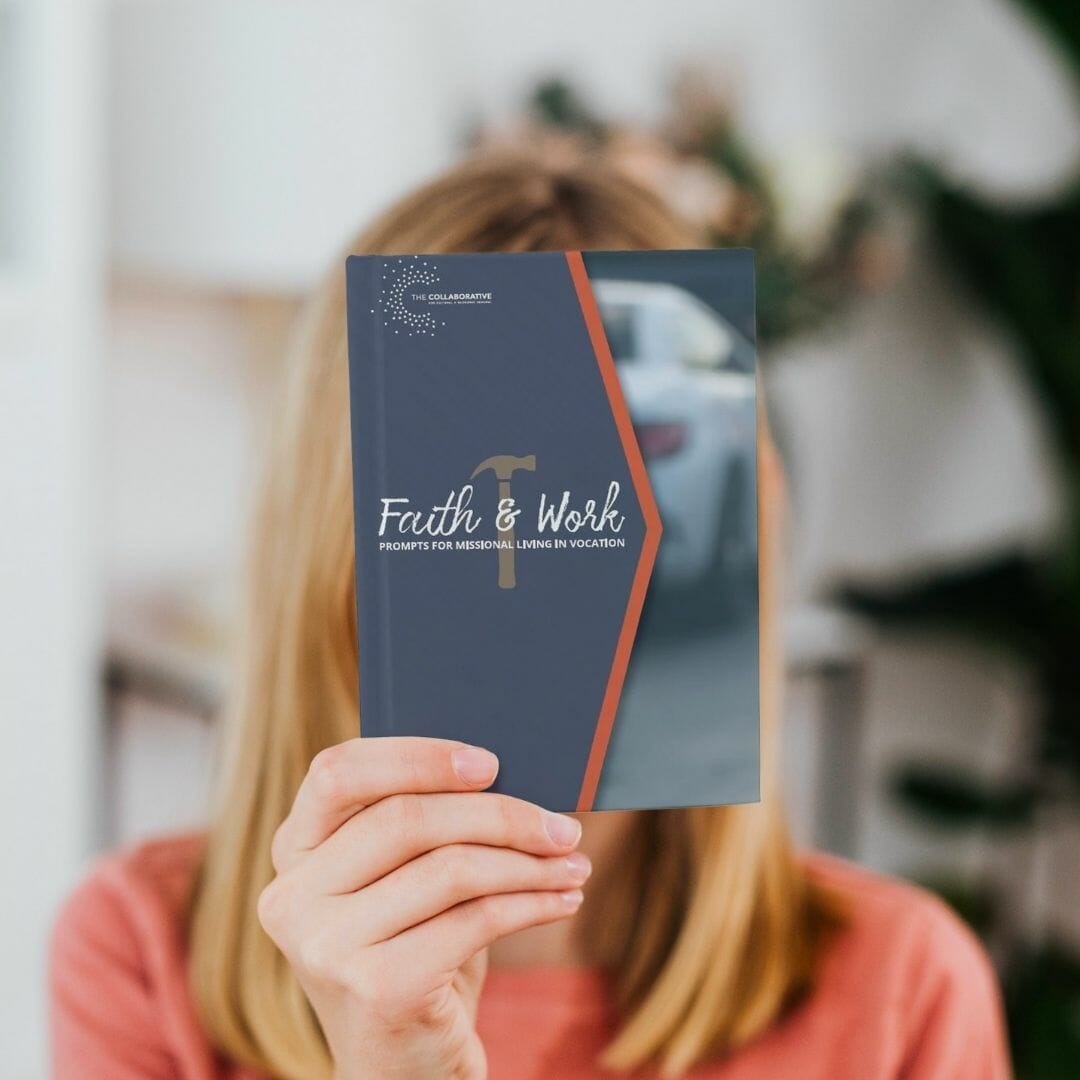If the Christian virtues were three friends in a highschool comedy, Faith would be the stodgy one. Hope would be exciting, the one that’s easy to sell to the crowds because she has great stage presence. She’d be adorable and everyone’s favorite because she’s just a little bit crazy. Love would be the responsible one, the mother of the group, and the main character. If you liked the show, then you would have to like her, because it’s her show. Faith would be the one who substitutes being good with technology for having a personality and exists solely as the foil to ground the other characters’ hijinks. In the end, faith is like the concrete of the Christian life. It keeps our house from falling, but we’re not going to carry a block of it with us to work.
Some of this characterization of faith belongs to the association game we play in our heads. Love is an overused word, but at least it weaves in and out of conversational threads that we often want to be a part of. Sure, it can be used as a reminder of obligation, “Do you even love me?”, but it more often lives on the edges of excitement, “I love this restaurant,” or in the center of commitment, “I love you.” Hope has its time to shine too. It is the rallying cry of most box office smashes. If one more unlikely hero turns out to be our last and only hope, maybe they’ll be able to save the world permanently this time.
Faith tends to exist in two forms in our everyday conversations, one as a sort of evangelical branding strategy such as faith-based films or organizations, the other as the trite dismissal of difficult questions or problems, “You just need to have faith.” These two forms of conversation are picked up by American Christianity and utilized in different ways. These ways often correspond to two different camps, those who wield a weaponized, politically-oriented faith, and those who tend to their faith hidden like a bonsai tree springing in the hollow of their heart, small, precious, and intensely personal.
For the politically-oriented, the evangelical brand is a flag that they jealously guard in a game of king of the cultural hill while swinging around “lack of faith” like a club, beating back the great aggressors of evolution and religious pluralism or [insert whatever makes you angry here]. For the personally-oriented, both of these forms exist as a form of escape, a personal balm that covers over life’s difficulties, denying the rigor of study and soul-searching prayer and substituting a feel good story of God-coming-through-in-the-end that safely mirrors the privileged white suburban lifestyle. I’m aware that these are polemical constructs, that everyone engages with both doubt and compassion at some level. However, good theology should enable our good practice, not hinder it. Is there a conversational form of faith that can step into the public sphere without wielding a sword? Is there a faith that does not dismiss difficult and troubling questions but instead provides the resources to truly engage with them?
Instead of engaging this monumental task head-on, I would like to ask a smaller question that may provide clues to how we can approach the larger question. What would faith look like in the business world? This question often gets diverted into a discussion of “the Christian faith,” but the question that I mean to ask here is about the virtue. Does faith have a place in business? If it does, would that faith have any intersection with the faith we exercise as Christians, or do they only share their definitions like two unfriended students sitting in the same class but on opposite sides of a large lecture hall? To answer, let’s take a look at what faith is.
Why Faith Is Both Small and Mighty
Faith is trust in something that you don’t have immediate evidence for. It’s a virtue of traces, of the smell of rain before the clouds even appear. It exists in different ways at different times and places, and in our blindness, we have not stopped to behold its glorious manifestations for what they are. Faith is a show of strength, a shield that stops the fiery breath of dragons. It is the working feet of the Christian journey, the inside-out rally cap in the bottom of the ninth of life, the down-to-earth grit, not the five minute grit everyone is selling in self-help books, but the real one that looks out from your best friend’s eyes in that moment when you have to choose and you choose together. We have relegated faith to the outskirts of our conversation because we are blind to the many different ways, times, and places that its strength bursts forth.
The image of faith as strength is what I realized that I was missing. Growing up, the shield of faith always had apologetic overtones, dwelling in the context of Intelligent Design or prayer in public schools. God is opening my eyes to faith as it exists in all its forms, a tender faith like a young sapling that can split concrete or the giant rock steady faith that shields us from the merciless glare of the daily grinding sun and others, many others. But just like many of my Christian brothers and sisters before, God had to create a space where the only refuge I had was my faith. He moves in odd ways. He made me start a company.
How I Learned More About Faith By Looking In My Business Partner’s Eyes
Faith doesn’t come easily to me. I don’t have an Annie kind of faith. I’d rather have it rain than have the sun come out tomorrow. The only kind of faith that my New England heritage instilled in me is the sort of gallows humor that accompanies eighty-six years of ball-through-the-legs heartbreak. (If you don’t know who Bill Buckner is, don’t watch. It’s one of the saddest things in sports.) I came from a church background that was so “conservative” it came out the other side as an oddball extrusion of American fundamentalism. If I asked an adult a question they didn’t have the answer for, they rarely if ever looked it up. The question was generally considered a fault in me because I did not have enough faith.
I am grateful for the gifts that I did receive from my background: a love for Jesus, a lot of Scripture memory, and a college where I had teachers who embraced my questions. I also found my wife at college. Her name is Becky Sue, and she’s the most faithful person I know.
Around two and a half years ago, Becky Sue and I hit a rough patch in our lives. While we certainly made our share of mistakes, it was an astounding series of unfortunate events that put the car of our finances in a tailspin. I was unemployed for over a year, jumping from one temp job to another. We had several misadventures, including, but not limited to, enduring the millennial nightmare of moving back in with parents, having a baby the week of Irma, and using an interest-free credit card to mingle at job networking events. Of those three, the job networking was by far the worst.
However, we did make two wise decisions during this period. We made decisions according to our values, not our bank account, and we created a habit of gratitude. The habit of gratitude is something that we’re still working on to this day, but few things have changed my life more than the daily act of thanksgiving.
Choosing our values over our bank account was more difficult. I was offered a job. Our values told me that it was a job that only paid money. It would support our family, but I would spend seventy hours a week in a field that I had no passion for. Instead, I chose to take three months off and learn how to code. I went to numerous tech networking events, and, eventually, I found a job as a junior web developer at a small digital marketing firm. It wasn’t a great fit. They were great people, but we had vastly different visions for what we wanted.
In the end, we parted ways. I was again unemployed, and my wife’s company, where she had worked for five years, ending as the director of operations and marketing, was bought out. She was a remote worker at the time and saw the divine handwriting on the wall. She didn’t apply with the new administration.
We looked at our skill sets. I had learned how to code websites, and Becky Sue had done user experience and graphic design on the side for several years to keep her sharp for her job as director of marketing. We decided our skills were a good set together and started trying to find work that we could partner in. Because I had been subcontracting under the digital marketing agency, we already had an LLC, one with a silly title, something that I chose at random because I thought I would just be using it at that agency. My company’s name was Candid Goat Productions. We started to freelance under my LLC, or at least, that’s what I thought. Becky Sue realized it right away, but it took me a few weeks to realize that we had just started a company. It was mostly by accident.
Before, I was looking to find an employer who would provide some sort of security. Not that I was looking for a cushy, do-nothing job, but I just wanted a place that I didn’t have to look over my shoulder at the looming specter of unemployment anymore.
Owning your own business is different. We googled “business plan,” and we created a business plan. I read books on how to start a business, especially tech businesses. They were helpful, but they didn’t bring in customers. God gifted us a few clients at the start, but they didn’t cover our bills. Month to month, we prayed for new clients, and we worked and prayed that we would keep our old ones. Months went by where we squeaked through (more or less) from invoice to invoice.
Here, I learned about faith. I learned about faith because Becky stuck with me every step of the way. She believed in me, and she believed in us. I learned about faith because when Becky asked me where the money was going to come from, I walked her through the business plan from start to finish, and the business plan was solid. Our choice to celebrate the acts of God one grace at a time stuck. We were barely making ends meet, but the air contained traces of rain, a few clouds in the distance, an overloaded smell of moisture. We looked into each other’s eyes, and, together, we decided to believe in the as yet unseen.
Faith in a Creator, Faith in His Creation
It’s almost paradoxical, but the faith for all our endeavors is found in both certainty and uncertainty. In uncertainty, we realize that we are not completely in control of the process. “Unless the Lord builds the house, the builders labor in vain. (Psa 127:1)” In certainty, we realize that God sustains the processes and systems that we use in obtaining our results. “For in him all things were created: things in heaven and on earth, visible and invisible, whether thrones or powers or rulers or authorities; all things have been created through him and for him. He is before all things, and in him all things hold together. (Col 1:17)” From every conceivable angle and source, God controls and sustains the work of the world.
Business, especially an early stage business, demands trust in the unseen customer, the person whose name you don’t know but who wants your product. Market research helps with this, but market research is no guarantee. The farmer knows the same principle. The more learned farmer has a better chance of bringing in a bumper crop, but though he plants, fertilizes, and waters, it’s God who gives the increase.
In a materialist culture, the awe-inducing image of the God who holds the waters and the sky in the palm of his hand is rendered harmless as a reassuring image in children’s books. He hasn’t changed though. God still sustains everything. In science, this sustenance is called the Doctrine of Uniformity. In a very cramped and unscientific nutshell, the Doctrine of Uniformity means that what Nature has done, in gravity, genetics, or anything in between, Nature will continue to do. This certainty is the bedrock on which farmers and analysts alike build their predictions, and which without, all human endeavor would be impossible.
The obvious caveat to these good gifts begins with the Fall and lands in the prickly embrace of the Curse. The Curse brings into being the horizon clogging specter of death and our nearby neighbor pain. What we sow must be reaped in hard work, and we cannot even bring children into the world without agonizing pain. The Fall spells wickedness in our communities, a brutal cursing of its own that whispers not only of the death imposed by the Curse but of the embrace of that death. Evil exists, and it delights in death even as it fears it. Both of these realities must figure into the equation of faith. Faith knows them, but it does not fear them because faith is well acquainted with Love, and perfect love casts out fear. Hard work is still hard though, and pain still hurts.
I’m treading a fine line here, but an important distinction exists between worshiping Creation instead of the Creator and trusting Creation because you trust its Creator. This connection leads to a couple of realizations. If I trust the Creator, then I can trust the goodness of His Creation, in fact I must. While we must stay aware of the limitations imposed by the Curse, every good and every perfect gift comes from our Father, and we should recognize them for what they are. On the other hand, the Christian who trusts Creation is doing so because he trusts the Creator. Our business practice must be shaped by the words and wisdom of our Savior and Creator. The Bible is full of commands that God gives us because He loves us. When God calls for us to give thanks, we should give thanks. When God points to the ant and warns us to be diligent, we must be diligent. When he warns us that our full barns will not save us from death, we should invest in what truly matters. When he warns us that those who oppress the poor and the stranger will be punished, we must listen.
A businessman of faith has faith in the process because God sustains and blesses the process, but his process is shaped and formed by the Word and Wisdom of God. More importantly, the faith that a businessman has in his business is just the reasonable extension of the faith he has in the God who sustains his business.
Let’s assume for the moment that you find the above convincing. How do you achieve this kind of faith?
Mechanisms of Faith: Or, How I Learned to Stop Worrying and Love the Ritual
We have all met people for whom faith comes easily. There are two kinds of people in this world: those who enjoy Little House on the Prairie unironically, and those who struggle with their faith. The previous points may have been convincing, but they leave you stranded, aching for water in the dry desert while all you see around you are mirages of clear water. If I don’t have faith, how do I get faith?
Faith is not an all or nothing proposition. It doesn’t operate like a light switch. Faith off; faith on. This insidious idea is rarely stated clearly but seems to operate in the depths of peoples’ stories about themselves, “I’m struggling with my faith,” or “I just don’t feel like he’s there.” Even a cursory reading of the Bible demonstrates that faith is something that we can have more of. “Lord, I believe. Help my unbelief. (Mark 9:24)” Unless faith exists in varying amounts, this is a nonsensical statement. What’s the point of saying, “If you have faith as small as a mustard seed, (Matt 17:20)” if faith only comes in mustard seed size? Even more dangerously, we know that “everything that does not come from faith is sin. (Rom 14:23)” Christianity is a pilgrimage and a marathon, not a zero to one hundred in three seconds sports car. We don’t randomly spurt gouts of faith from moment to moment like an unreliable water fountain.
The real culprit here is the idea that faith and feeling should be closely matched. Few things more clearly demonstrate the fallacy that feeling equals belief than starting a business. Some days, it felt like we would never get any customers, that we would never break from the red into the black. But I kept doing what I needed to do. Some days, I did better than others, often because I was affected by my feelings, but I kept pressing forward. Eventually, your feelings will fall in line.
Pascal’s Wager (again to cruelly nutshell something beautifully nuanced) is the idea that we should choose Christianity over atheism because Christianity has infinite stakes versus the finite stakes of atheism. It has been criticized for many reasons, but one of the most common complaints is that Pascal treats the idea of belief as if we can choose our beliefs. Many skeptics scoffed at this idea, yet Pascal gives the same practical solution to this question as I mentioned above. If we ask, “I cannot believe, what should I do?” He answers:
You would like to attain faith and do not know the way; you would like to cure yourself of unbelief and ask the remedy for it. Learn of those who have been bound like you… Follow the way by which they began; by acting as if they believed, taking the holy water, having masses said, etc. Even this will naturally make you believe…
– Pascal, Pensees, 233
As a Roman Catholic, Pascal points to the ritual of the mass. As a Presbyterian, I remind us of scripture, “Let us consider how we may spur one another on toward love and good deeds, not giving up meeting together, as some are in the habit of doing, but encouraging one another. (Heb 10:24-25)” Do you struggle with belief? Go and commune with your brothers and sisters in Christ. Evangelicals go to church on average a little over once a month. We may not be able to choose our feelings. We may not even be able to choose our beliefs. But surely we can choose our actions, and both our faith and our feelings will follow. Ritual can be dangerous, but a complete rejection of habits is just as dangerous. Do you believe but struggle with unbelief? Practice the habits of grace. Practice thanksgiving, prayer, the study of God’s Word and what he values, and for heaven’s sake, go to church and be encouraged.
A Faith That Works Is Good Business
A faith that works is a faith that practices the habits of grace. Your work, whatever that work is, is created and sustained by the living God. Do you want to be a good Christian? Practice the habits of grace. Your feelings will follow. Do you want to be a good businessman? Practice good habits. The good habits of business will grow in the soil that God prepares and sustains for us. A faithful businessman believes in Creation because he believes in the Creator. Do not fear the presence of pain or the looming ghost of death. You know who triumphs in the end. Instead, work for the Lord to bring His kingdom to the little patch of earth that he has given to your care. The right practice of faith in business, the faith that chooses Christ because Christ is both Sustainer and Creator, will ultimately lead to good business.
PJ Wehry is a Gotham alumnus and the co-founder of Candid Goat, a web development agency serving small businesses in Orlando.









